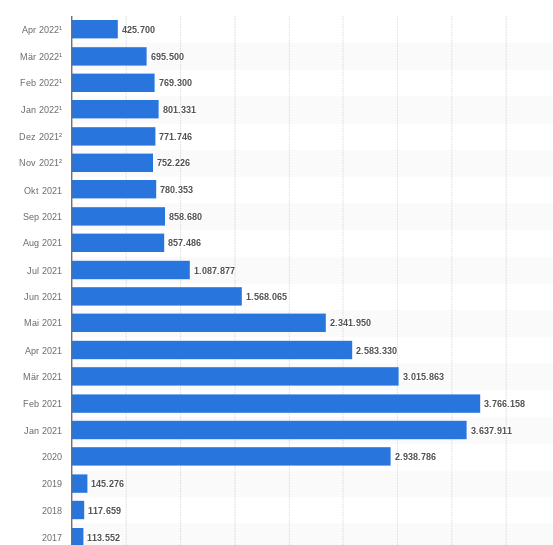Even when large parts of the "Corona measures" were lifted at the beginning of April, one thing remained: The relaxed rules in the application of short-time work justified by the pandemic. The German Bundestag extended the so-called facilitated short-time allowance until 30 June 2022. In concrete terms, this means that the maximum period of entitlement to short-time allowance has been extended from 24 to 28 months. In addition, it is sufficient if at least ten percent of employees are affected by work loss, although according to actual legislation at least one third of a company's workforce must be affected.
As a result, companies are still increasingly registering for short-time work. Although the figures can no longer be compared to the peak in spring and summer 2020, they are still far above normal. In April, parts of the German car industry again went on short-time work, which affected tens of thousands of workers. Currently, steel producers like Thyssenkrupp in Bochum or Arcelor Mittal in Bremen announced short-time work, robbing thousands of colleagues of part of their wages.
Since Corona no longer works as a justification, other reasons are now being found for the short-time work. Whether it is the shortage and problems in the supply of semiconductors in the car industry or the war in Ukraine in the steel industry - the rulers find one pretext after another to cover up the overproduction crisis.
So the anti-worker measures that the German state came up with using the excuse of Corona will continue "after Corona". After the last extension of the relaxed short-time work regulations in March, they would only last until the end of June. But a renewed extension remains to be suspected. Austria recently extended short-time work until the end of 2022. That the FRG will do the same and continue to keep hundreds of thousands of workers on short-time work is not exactly unlikely in view of the economic crisis.











